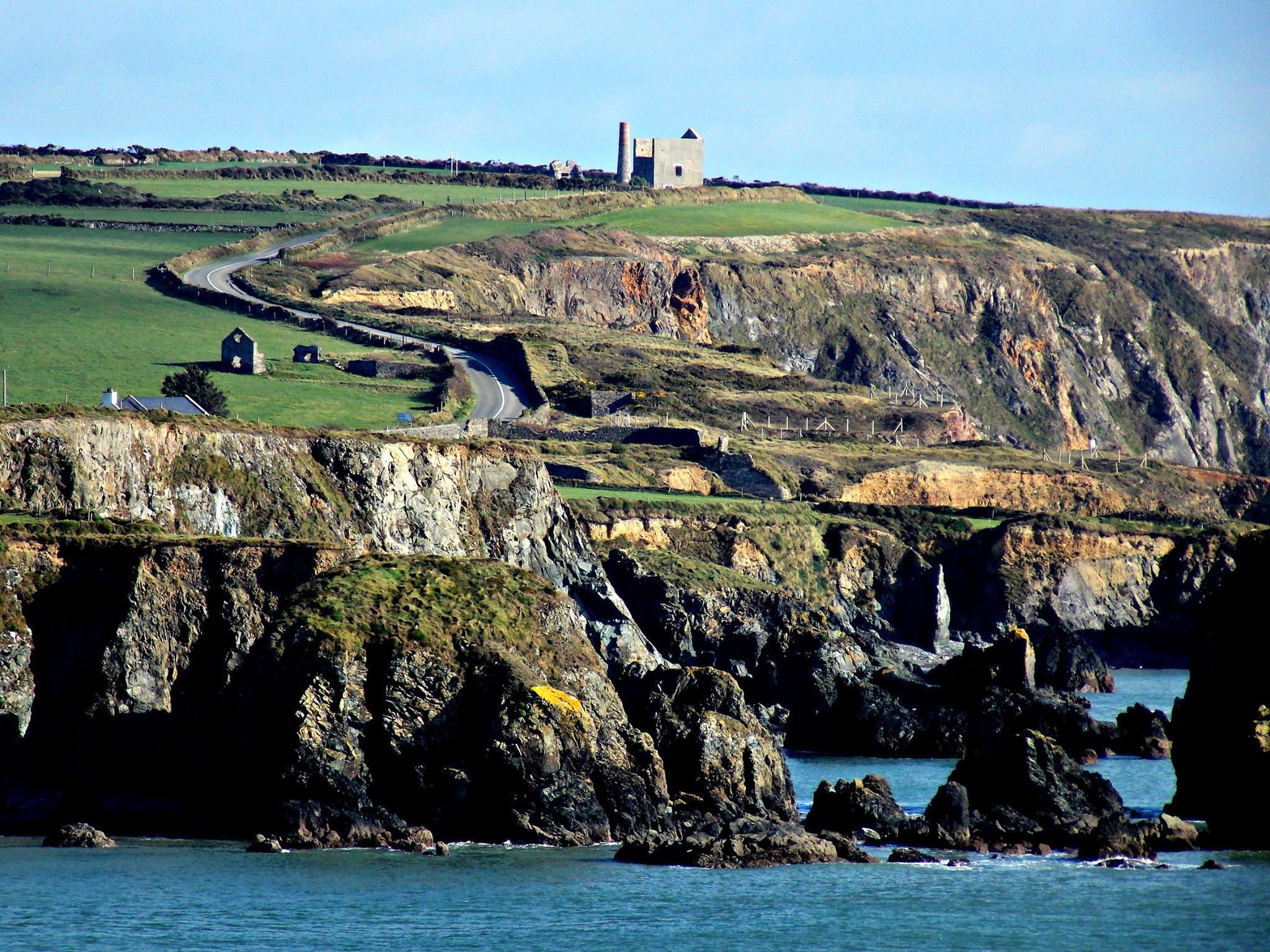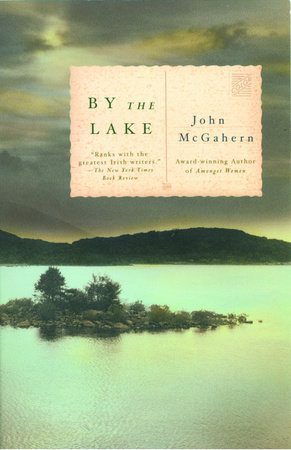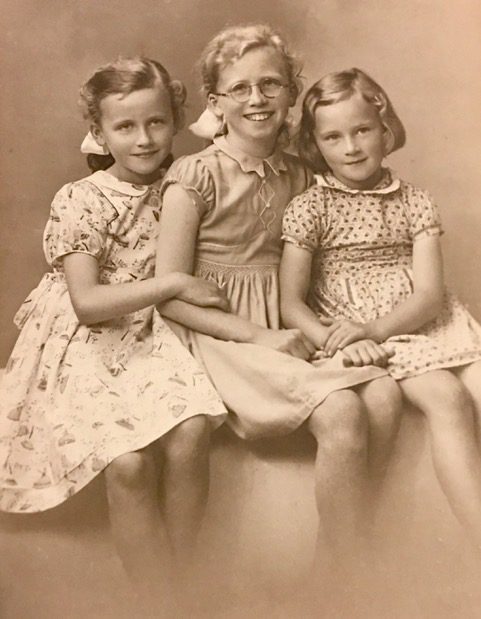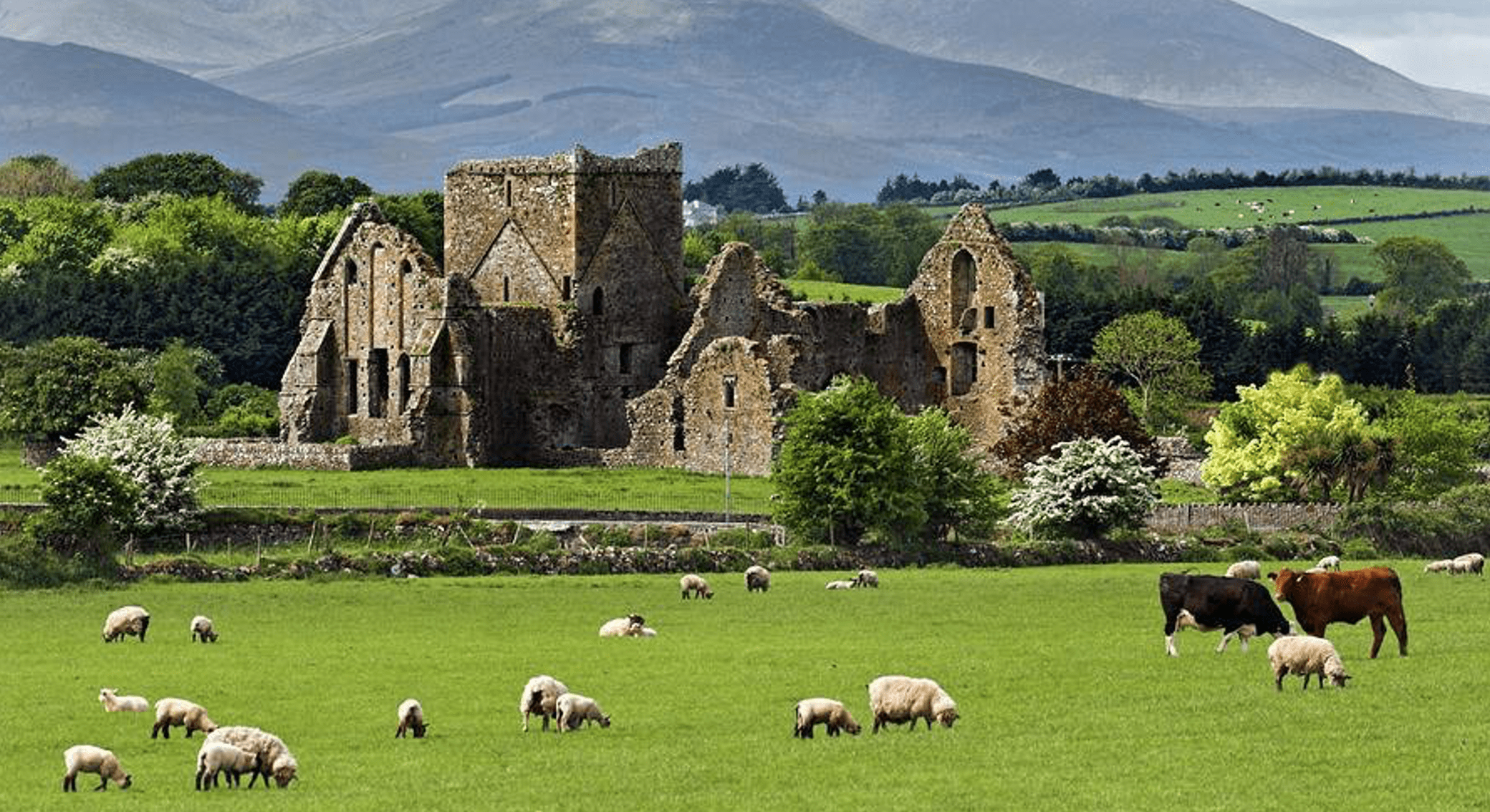Last updated on November 19th, 2023
About this Book
IRELAND – a country brimming with magic, folklore, rolling green hills and lilting musical voices – calls to travelers the world over, no matter what percentage of Irish their heritage may claim.
Join us for an excursion to Ireland! We’ll be discussing “By the Lake: That They May Face the Rising Sun”, by John McGahern, 2002.
Here are the Ruttledges, who have forsaken the glitter of London to raise sheep and cattle, gentle Jamesie Murphy, whose appetite for gossip both charms and intimidates his neighbors, handsome John Quinn, perennially on the look-out for a new wife, and the town’s richest man, a gruff, self-made magnate known as “the Shah.”
Following his characters through the course of a year, through lambing and haying seasons, market days and family visits, McGahern lays bare their passions and regrets, their uneasy relationship with the modern world, their ancient intimacy with death.
Our Take on this Novel
This is a beautifully written novel on the ebb and flow of small towns and villages, true to the essence of Ireland. We’re not really not sure when this novel takes place. While it stimulated an active discussion on time and community, some did not enjoy the book, finding it slow-moving, making it a perfect read for bedtime reading). Best for long, absorbed spurts of reading.
Does it inspire us to pack our bags to Ireland? Yes: a solid three out of five. However, Ann Quinlan’s stories of Ireland made us long even more for this land of stories, history, and culture.

Carolyn and Wendy, your book club hosts

By the Lake That They May Face the Rising Sun (UK title)
By John McGahern, 2002
BOOK CLUB JULY 8, 7 PM ET.
In 2002, the New Yorker wrote: “This stately novel by one of Ireland’s foremost writers is, as its title suggests, primarily about the rhythms and cadences of place. The story is an old one: in search of a quieter way of life, Joe and Kate Ruttledge have traded their careers in London for a farm near a small Irish village, where they learn how to raise sheep and are steadily drawn into the lives of their neighbors.
McGahern is never sentimental, and the novel’s greatest pleasures come from the unflinching probity of his observations: he writes as crisply about the parsimony of a neighbor or sending lambs to be slaughtered as he does about the notion that happiness should be allowed its own slow pace so that it passes unnoticed, if it ever comes at all.”
BUY THE BOOK:

ABOUT THE AUTHOR
Hailed as “the greatest living Irish novelist” before his death in 2006, McGahern (1934-2006) reminds us why he has been called the Irish Chekhov, as he guides readers into a village in rural Ireland and deftly, compassionately traces its natural rhythms and the inner lives of its people.
Publication of That They May Face The Rising Sun has aroused considerable expectations in Ireland, so much so that earlier this year the main morning radio news programme devoted a quarter of an hour to McGahern reading from what was then a work in progress. In its first week in the book shops it went to the top of the bestseller list. The writer Dermot Bolger explains that “there are certain Irish writers that are hugely important to, and inextricably bound up with, the Irish psyche. But they don’t always travel as well as they might. McGahern isn’t as well known outside Ireland as he should be. When he was shortlisted for the Booker prize, I remember watching the chairman of the judges mispronounce his name because it was so unfamiliar to him.”
That They May Face the Rising Sun is set in the late 1980s in McGahern’s habitual rural location. Creeping modernity in the form of newly erected telephone poles and a sheltered housing scheme for the old people encroaches on a small, isolated community living around the edge of a lake. While the book is broadly a communal portrait, one of its most important animating themes arises from those characters who have for various reasons worked over the water in England.
Source: The Guardian, “Ireland’s Rural Elegist”, January 2002
OUR FAVOURITE PASSAGE
The letter was short, its burden clear… Johnny wanted to return home and live with Mary and Jamesie as they had lived before he left for England.
“What are you going to do?”
“We don’t know,” he said in anguish.
“Do you want him home?”
“Mary,” he thrust out his hands. “Mary says she’d go out of her mind if he was back in the house again. She hasn’t slept a wink since the letter came.”
“What do you feel?”
“If he wants to come home, if he was in the house, we’d have to leave. It’s hard enough for the fortnight he comes every year. If he was in the house for good…I don’t know what we’d do. We can’t turn him away like a dog either.”
DISCUSSION QUESTIONS
1. What is your favourite part or passage of the book and why?
1. What’s your favourite passage in the book and why? (Please be prepared to share yours!)
2. What did you learn that you didn’t know about Ireland and its rural communities from the book?
3. How has this book changed or broadened your perspective? What did you learn?
4. Why does McGahern open the novel with the image of stillness on the lake? Why are the swans, the lake, the heron, the farm animals, and the changing seasons constantly juxtaposed against the human action related in these pages? Which descriptive passages are most striking? What is Joe Ruttledge’s relationship to nature, his farm, and his animals? How is this relevant to you today?
5. When asked what’s wrong with his life in London, Joe Ruttledge replies, “Nothing but it’s not my country and I never feel it’s quite real or that my life there is real. That has its pleasant side as well. You never feel responsible or fully involved in anything that happens” [p. 23]. How is Joe’s reply to Jimmy Joe McKiernan understood in the context of the rest of the novel?
6. Some of the most important questions addressed by this novel were asked by reviewer Hermione Lee, who wrote in the London Observer: “This great and moving novel, which looks so quiet and provincial, opens out through its small frame to our most troubling and essential questions. How well do we remember? How do we make our choices in life? Why do we need repetition? What is to remain of us? Above all, what can happiness consist in?” How do these themes apply to our world today?
7. By the Lake is a novel of manners that, like the work of Jane Austen, scrutinizes the ways in which human beings interact in a small community. What is most noticeable about how Joe, Kate, Jamesie, and Mary behave toward one another? How important are the qualities of generosity, humor, and patience in today’s world? Why is so much careful attention paid to certain ceremonial aspects of life, such as when the Ruttledges host a dinner party for Jamesie’s extended family [pp. 288–92]
8. If you could ask the author any question, what would it be?
SPECIAL GUEST
Our guest is Ann Quinlan, an Irish native who has led women’s tours to Ireland for over 30 years. Ann has led tours to Ireland for the past 30 years with her company Spiral Journeys.
Ann will update us on travel to Ireland, and speak to the culture, history and villages of Ireland mentioned in the book.
Ann recently penned an article for us about Lúghnasah: Ireland’s Celtic Pre-Harvest Festival in July 2020.





0 Comments
We always strive to use real photos from our own adventures, provided by the guest writer or from our personal travels. However, in some cases, due to photo quality, we must use stock photography. If you have any questions about the photography please let us know.
Disclaimer: We are so happy that you are checking out this page right now! We only recommend things that are suggested by our community, or through our own experience, that we believe will be helpful and practical for you. Some of our pages contain links, which means we’re part of an affiliate program for the product being mentioned. Should you decide to purchase a product using a link from on our site, JourneyWoman may earn a small commission from the retailer, which helps us maintain our beautiful website. JourneyWoman is an Amazon Associate and earns from qualifying purchases. Thank you!
We want to hear what you think about this article, and we welcome any updates or changes to improve it. You can comment below, or send an email to us at [email protected].